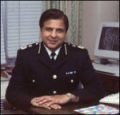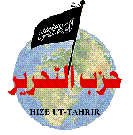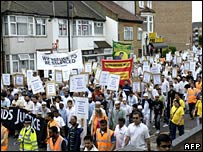 One of Britain’s top police officers will today warn that anti-terrorism laws are discriminating against Muslims and law enforcement agencies are running a “real risk” of criminalising ethnic minorities.
One of Britain’s top police officers will today warn that anti-terrorism laws are discriminating against Muslims and law enforcement agencies are running a “real risk” of criminalising ethnic minorities.
Tarique Ghaffur, assistant commissioner in the Metropolitan police, will also call for “an independent judicial review” of why some young British Muslims turn to extremism. He warns that more work is needed to stop the “flight, fright or separation” of British Muslim communities after the July 7 2005 bombings in London.
Mr Ghaffur, Britain’s highest-ranking Muslim police officer, will today address a National Black Police Association conference in Manchester and tell how racism has blighted his own career. Since the September 11 2001 attacks on the United States, western countries have toughened counter-terrorism laws. Mr Ghaffur will say:
“Not only has anti-terrorism and security legislation been tightened across many European countries with the effect of indirectly discriminating against Muslims, but other equally unwanted practices have also emerged, including ‘passenger profiling’ as well as increased stop and search and arrest under terrorism legislation.”
In Britain, people of Asian appearance have borne the brunt of increased stopping and searching. Police have said the practice is “intelligence-led”, but Mr Ghaffur appears to cast doubt on this repeated defence: “These practices tend to be based more on physical appearance than being intelligence-led.”

 A number of radical Muslim groups are to be proscribed despite concern that this will drive them underground where they cannot be monitored. As part of the Prime Minister’s 12-point plan to tackle terrorism, announced after the London bombings on 7 July last year, the government is to unveil a list of organisations it wants to ban under the Terrorism Act 2006. The list is expected to include Hizb ut-Tahrir.
A number of radical Muslim groups are to be proscribed despite concern that this will drive them underground where they cannot be monitored. As part of the Prime Minister’s 12-point plan to tackle terrorism, announced after the London bombings on 7 July last year, the government is to unveil a list of organisations it wants to ban under the Terrorism Act 2006. The list is expected to include Hizb ut-Tahrir. Thousands of protesters led by members of the family caught up in the anti-terrorist raid in east London two weeks ago demanded an apology from police yesterday for their “barbaric and unacceptable” treatment.
Thousands of protesters led by members of the family caught up in the anti-terrorist raid in east London two weeks ago demanded an apology from police yesterday for their “barbaric and unacceptable” treatment.